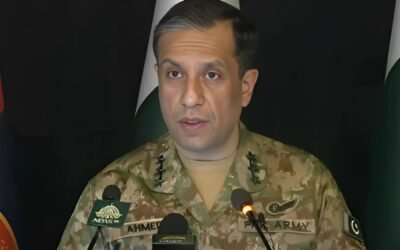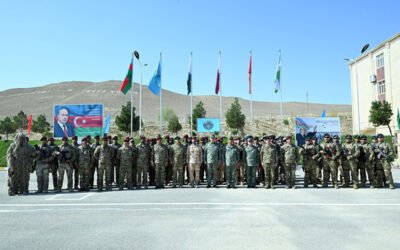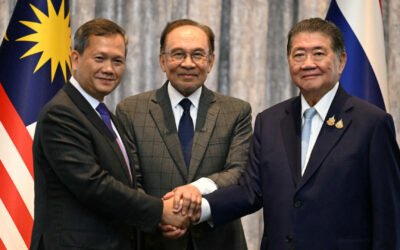General Sahir Shamshad Mirza, Chairman Joint Chiefs of Staff Committee (CJCSC) of Pakistan, has recently concluded a series of high-profile engagements in Saudi Arabia and Bahrain, underscoring Pakistan’s commitment to strengthening defense ties and fostering regional stability. These visits, marked by discussions on bilateral military cooperation and evolving security dynamics, highlight the importance Pakistan places on its strategic partnerships in the Middle East.
Strengthening Maritime Security with Saudi Arabia
On July 24, 2025, CJCSC General Sahir Shamshad Mirza held a significant meeting with Vice Admiral Mohammed bin Abdulrahman Al Ghuraybi, the Chief of the Naval Staff of the Royal Saudi Naval Forces (RSNF), at the Joint Staff Headquarters in Rawalpindi. During the meeting, General Mirza reaffirmed the historical and brotherly relations between the Kingdom of Saudi Arabia and Pakistan, emphasizing a mutual resolve to enhance existing bilateral defense cooperation.

Source: ISPR
The discussions primarily focused on the evolving regional security dynamics in both the Middle East and South Asia, with a particular emphasis on maritime security. This focus is especially pertinent given recent geopolitical tensions affecting crucial trade routes through the Red Sea and Arabian Gulf.
Both sides stressed the importance of bolstering maritime security cooperation, reflecting a shared interest in safeguarding vital sea lanes. Earlier the same week, Al Ghuraybi also met with his Pakistani counterpart, Admiral Naveed Ashraf, at the Naval Headquarters in Islamabad, where they pledged to further strengthen and diversify the scope of existing bilateral defense relationships, including joint training programs and military exercises.

Source: Arab News
The discussions encompassed the evolving regional security situation and other issues of mutual interest. Both dignitaries expressed satisfaction with the progress in military cooperation and underscored the importance of continued collaboration to address shared security challenges.
It is worth noting that Pakistan and Saudi Arabia have a history of robust security cooperation, with recent high-level civilian engagements also aimed at strengthening ties. For instance, various meeting between Pakistani and Saudi Arabian Ministers have been held in the past to discuss joint efforts in counterterrorism, anti-human trafficking, and anti-narcotics operations, further cementing the comprehensive nature of the bilateral relationship.
Strategic Vision for Regional Peace
These recent engagements by the CJCSC reflect Pakistan’s proactive foreign policy in strengthening defense partnerships with key regional allies. By fostering closer military-to-military ties and facilitating high-level exchanges, Pakistan aims to enhance its collective security capabilities, promote regional stability, and contribute to a more secure global environment. The emphasis on shared security concerns, counter-terrorism efforts, and maritime cooperation underscores a unified approach to addressing contemporary threats and safeguarding common strategic interests in a rapidly evolving geopolitical landscape.
Future Outlook of Pakistan-Saudi Defense Cooperation
The recent high-level military interactions between Pakistan and Saudi Arabia signal a robust and expanding defense partnership. The renewed emphasis on maritime security cooperation is particularly indicative of a forward-looking strategy, as both nations recognize the critical importance of secure sea lines of communication for regional trade and stability.
Given their shared strategic interests in addressing evolving security challenges in the Middle East and South Asia, future cooperation is likely to deepen beyond traditional military exchanges. This could include enhanced intelligence sharing, joint exercises tailored to emerging threats, and potential collaboration in defense production or technology transfer, leveraging Pakistan’s expertise and Saudi Arabia’s strategic vision.
The consistent high-level visits and expressed mutual resolve suggest a sustained commitment to solidifying this defense alliance, positioning it as a key pillar for regional security in the coming years.




























